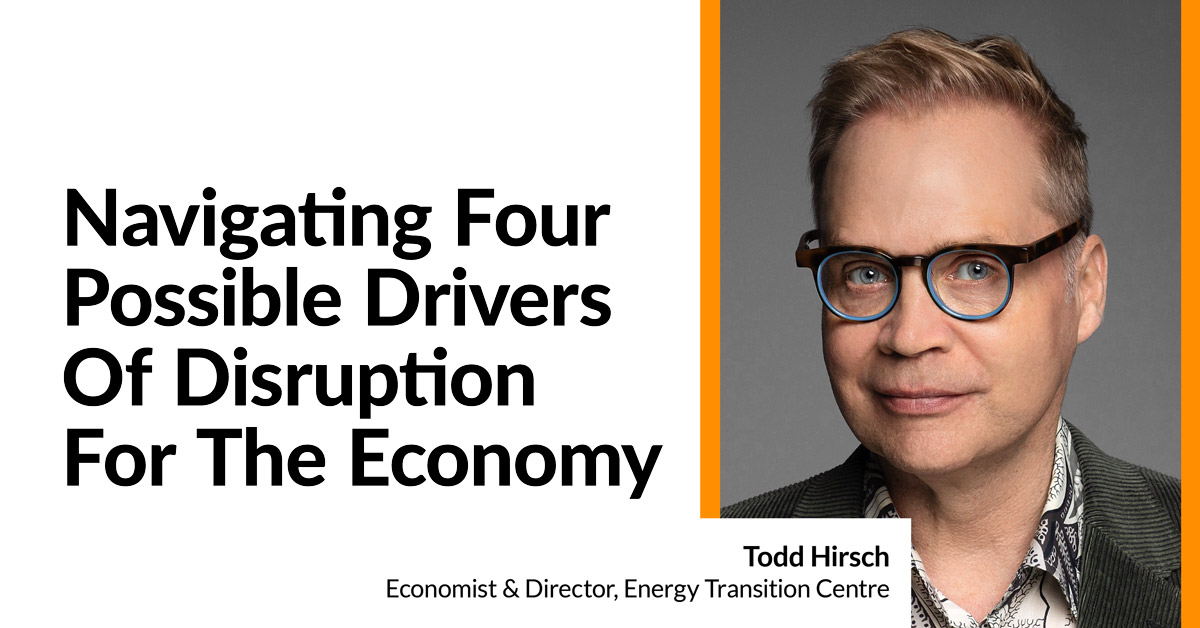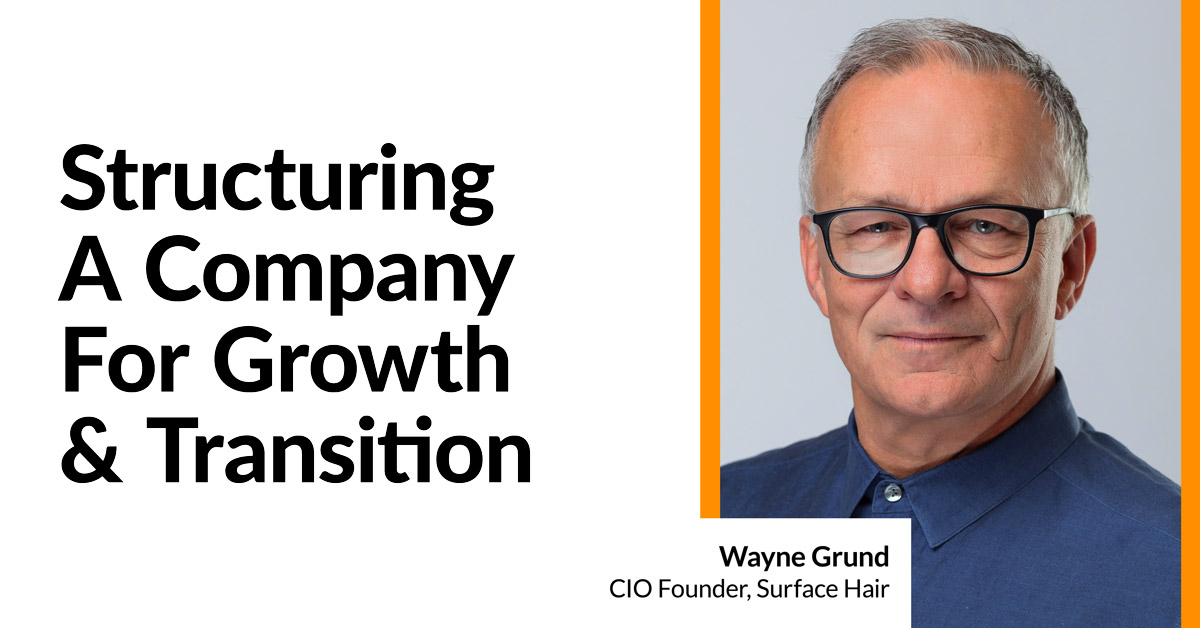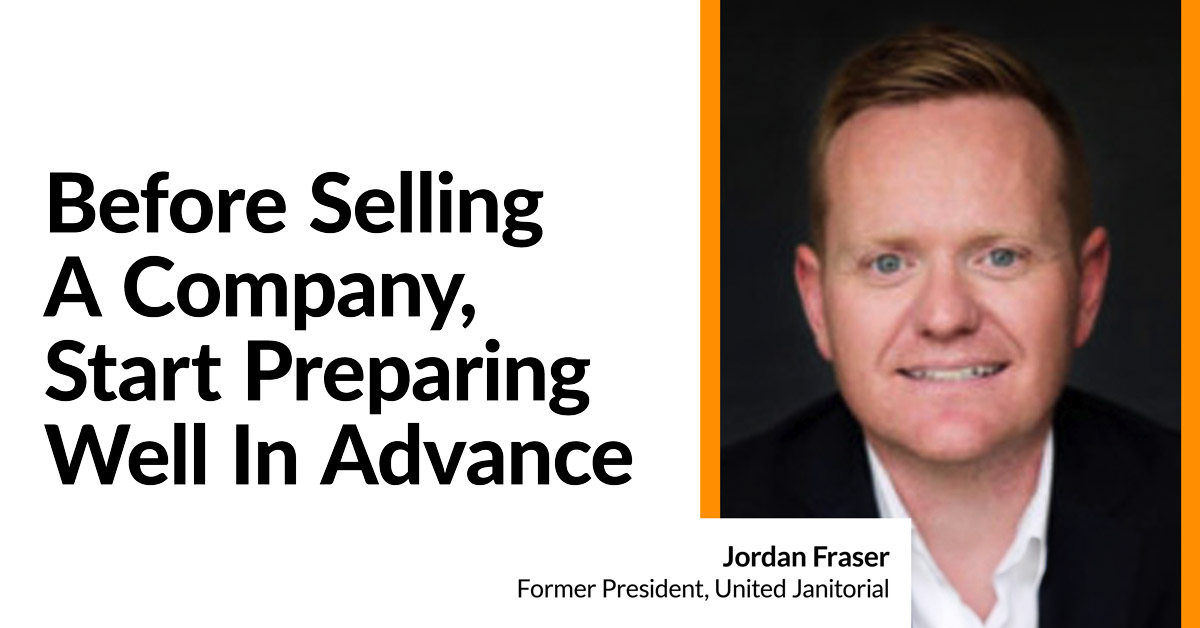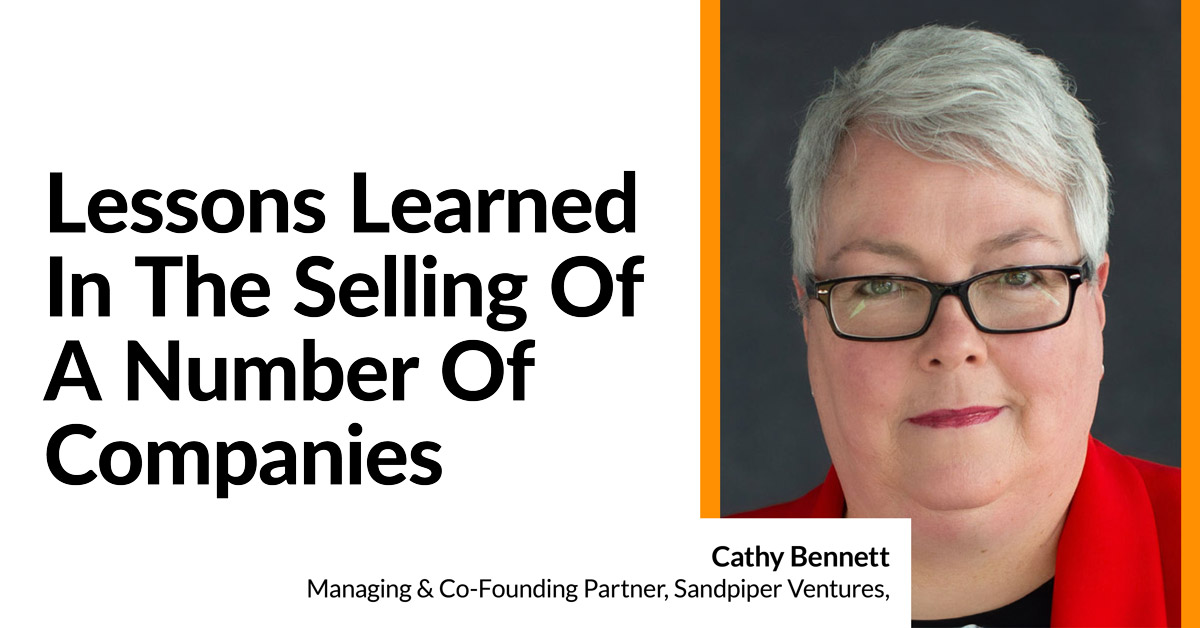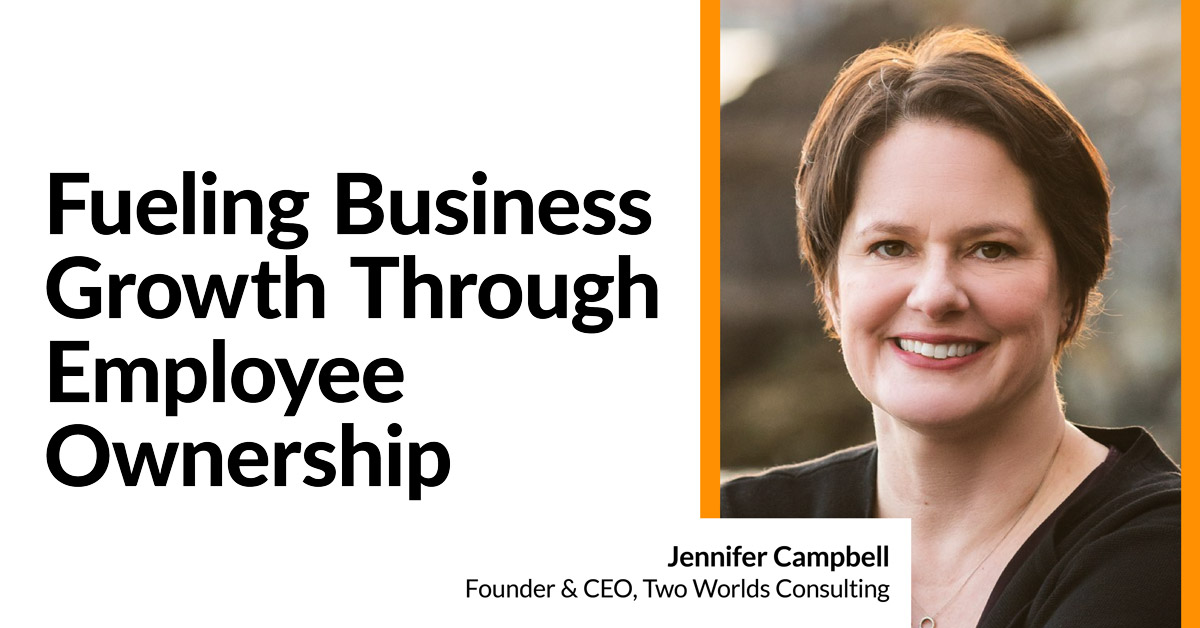Taking a local company global – how Kristin Delwo made it work
Business Transitions Forum
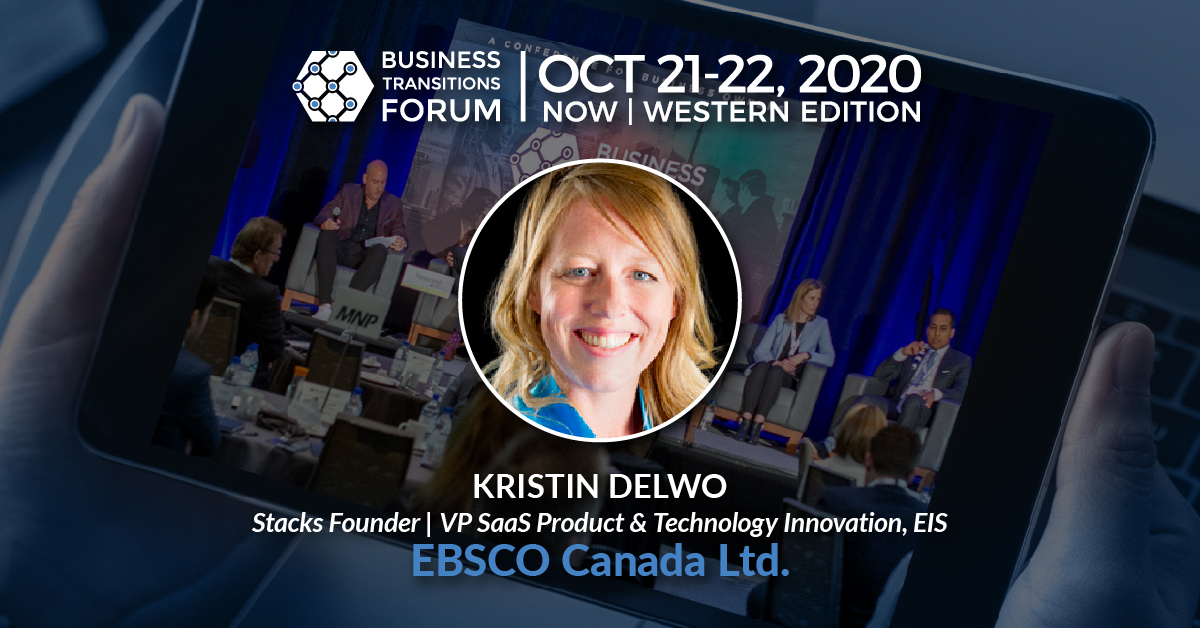
Kristin Delwo shares her survival tips
How do you survive an economic downturn like the one we are experiencing in 2020? Our interview with BTF NOW | West Edition speaker Kristin Delwo, Founder of Stacks Inc., shares her story from the trenches as a preview to our survival stories panel discussion. Kristin shares why looking beyond local markets and thinking globally can be a game-changer.
Q: Can you tell us a bit about yourself?
KD: I started my career in the public sector but was inspired to become an entrepreneur. My Stacks co-founder, Chad Smith and I worked together on many impactful projects at home in Alberta, first in a vendor-client relationship and later as business partners. We wanted to make these technologies and services available to others and we wanted to build a business that would stand the test of time.
We founded Stacks in late 2015 and sold it in early 2019 to EBSCO Industries. Our technology provides libraries with a robust and sustainable solution to provide their services through a software platform that is much more cost effective than the old way – what used to cost them $300,000 now costs them $30,000 a year and they can rest assured its going to perform like new year after year.
This success has been due to people and teamwork – finding and partnering with like-minded people is important.
Q: What inspired you to become an entrepreneur?
KD: I didn’t go into business to see how much money I could make, but was driven to solve problems. Today, Stacks serves libraries of all types from major global corporations to medical institutions to government agencies and of course the academic and public libraries we’ve come to recognize by the name. We serve schools in Africa that don’t have running water. Home Depot uses our technology for their professional development. Countless K-12 schools also use Stacks. It’s been incredible to see how this company we sold now reaches so many people globally – providing the information real people need, when and where they need it.
Q: What were some of the challenges you had to overcome as an entrepreneur?
My honest answer would have to be securing funding. It was a lot harder than the headlines make it sound.
Many potential investors had a hard time recognizing libraries as an industry and it was tough to show the world how vital and far-reaching libraries are. From schools to R&D to government to hospitals, all institutions rely on a library system of some sort. Our projections were simply not believable to the standard VC. American investors were also hesitant about investing in Canada. In the end, we bootstrapped, debt financed, sold shares to employees and ultimately, we made it work.
Q: What was your key to being able to sell Stacks and your key to success?
KD: First, we were able to negotiate a healthy merger with our buyer because of the strong relationships we had formed and the trust we had built through successful partnerships. Since we knew our global market opportunity was growing exponentially, we were able to design a long-term merger strategy. We often think about our “ecosystem” as our local peers or competitors when we really need to be focused on our customers’ “ecosystem” – the other products and services that are also part of our users’ workflow.
Second, we honestly did get lucky. Today, we’re in a position where business is growing even faster than anticipated due to increased remote learning and working around the globe. We could have never predicted this, but now virtual libraries are a requirement, not just a recommendation or best practice. We obviously didn’t forecast that all physical libraries would close in 2020!
Third, our continued success is due to our ability to transition and engage remotely. Our teams have always had a flexible working environment and we partner with people globally every single day. It was easy for us to be fully remote. Stacks has enabled our customers to access the information they need in our new environment and successfully engage their users when they are needed most. It’s been very rewarding to know we are able to support our customers in these challenging times.
Q: What advice do you have for entrepreneurs who are starting out or looking to grow their business?
Think globally. Any local marketplace is often not enough to sustain many types of businesses today through economic cycles. Our goal to diversify our business by expanding our market reach, along with selecting an industry that will never go out of style, couldn’t have prepared us better to weather this storm.
We’ve always been a flexible operation, focused on goals and outcomes more than fixed schedules and locations. Being able to transition effectively from working in an office, to working while travelling, to now working remotely removed plenty of hurdles for us. The best way to prepare for the future is to acknowledge that the world is a lot smaller and closer than it used to be. You have to be willing to change with the times and be open to different ways of delivering your products and services. Really, it’s just about being adaptable and being willing to change to safeguard your business.
To hear more from Kristin and other inspiring speakers at BTF NOW | West Edition, visit: https://businesstransitionsforum.com for ticket information and to register.
BACK



